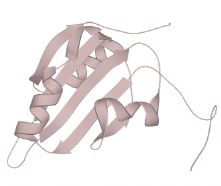
| Porcine Circovirus type 2 Antibody IgM In-vitro Diagnostic ELISA Kit |
| Catalog #: D01P0001 |
| Sample Type: Serum, plasma from Porcine |
1) Porcine Circovirus type 2 Antibody IgM Negative: Samples’ O.D. ≤ Negative Control’s OD450nm , then the animal source is healthy.
2) Porcine Circovirus type 2 Antibody IgM Positive: Samples’ O.D. >Negative Control’s OD450nm , then the animal source is infected.
3) Porcine Circovirus type 2 Antibody IgM Positive: Samples’ O.D. (90 days after vaccine)﹥Negative Control’s OD450nm , then the animal source is infected.
1) Sensitivity: 100%
2) Specificity: there is no cross-reaction with other substances in the samples.
3) Security: Pre-coated antigen, HRP-conjugated antigen and controls only have immunogenicity, non-microorganism toxicity and infectivity.
4) Intra-assay: CV<10% (n=3).
5) Inter- assay: CV<15% (n=9).
6) The experimental results should meet the following conditions. Should any of these criteria not be fulfilled, the test is invalid and the assay should be repeated: Positive Control’s OD450nm>1.0.
It is a replicating entity with one of the smallest DNA strands consisting of a simple loop of DNA. Its DNA sequence is 1768 base pairs long:
1 accagcgcac ttcggcagcg gcagcacctc ggcagcacct cagcagcaac atgcccagca
61 agaagaatgg aagaagcgga ccccaaccac ataaaaggtg ggtgttcacg ctgaataatc
121 cttccgaaga cgagcgcaag aaaatacggg agctcccaat ctccctattt gattatttta
181 ttgttggcga ggagggtaat gaggaaggac gaacacctca cctccagggg ttcgctaatt
241 ttgtgaagaa gcaaactttt aataaagtga agtggtattt gggtgcccgc tgccacatcg
301 agaaagccaa aggaactgat cagcagaata aagaatattg cagtaaagaa ggcaacttac
361 ttattgaatg tggagctcct cgatctcaag gacaacggag tgacctgtct actgctgtga
421 gtaccttgtt ggagagcggg agtctggtga ccgttgcaga gcagcaccct gtaacgtttg
481 tcagaaattt ccgcgggctg gctgaacttt tgaaagtgag cgggaaaatg cagaagcgtg
541 attggaagac caatgtacac gtcattgtgg ggccacctgg gtgtggtaaa agcaaatggg
601 ctgctaattt tgcagacccg gaaaccacat actggaaacc acctagaaac aagtggtggg
661 atggttacca tggtgaagaa gtggttgtta ttgatgactt ttatggctgg ctgccgtggg
721 atgatctact gagactgtgt gatcgatatc cattgactgt agagactaaa ggtggaactg
781 tacctttttt ggcccgcagt attctgatta ccagcaatca gaccccgttg gaatggtact
841 cctcaactgc tgtcccagct gtagaagctc tctatcggag gattacttcc ttggtatttt
901 ggaagaatgc tacagaacaa tccacggagg aagggggcca gttcgtcacc ctttcccccc
961 catgccctga atttccatat gaaataaatt actgagtctt ttttatcact tcgtaatggt
1021 ttttattttt catttagggg ttaagtgggg ggtctttaag attaaattct ctgaattgta
1081 catacatggt tacacggata ttgtagtcct ggtcgtattt actgttttcg aacgcagtgc
1141 cgaggcctac gtggtccaca tttctagagg tttgtagcct cagccaaagc tgattccttt
1201 tgttatttgg ttggaagtaa tcaatagtgg agtcaagaac aggtttgggt gtgaagtaac
1261 gggagtggta ggagaagggt tgggggattg tatggcggga ggagtagttt acatatgggt
1321 cataggttag ggcattggcc tttggtacaa agttatcatc tagaataaca gcagtggagc
1381 ccactcccct atcaccctgg gtgatggggg agcagggcca gaattcaacc ttaacttttc
1441 ttattctgta gtattcaaag ggtatagaga ttttgttggt cccccctccc gggggaacaa
1501 agtcgtcaag cttaaatctc atcatgtcca ccgcccagga gggcgttgtg actgtggtac
1561 gcttgacagt atatccgaag gtgcgggaga ggcgggtgtt gaagatgcca tttttccttc
1621 tccaacggta gcggtggcgg gggtggacga gccaggggcg gcggcggagg atctggccaa
1681 gatggctgcg ggggcggtgt cttcttctgc ggtaacgcct ccttggatac gtcatagctg
1741 aaaacgaaag aagtgcgctg taagtatt

 Datasheet
Datasheet


